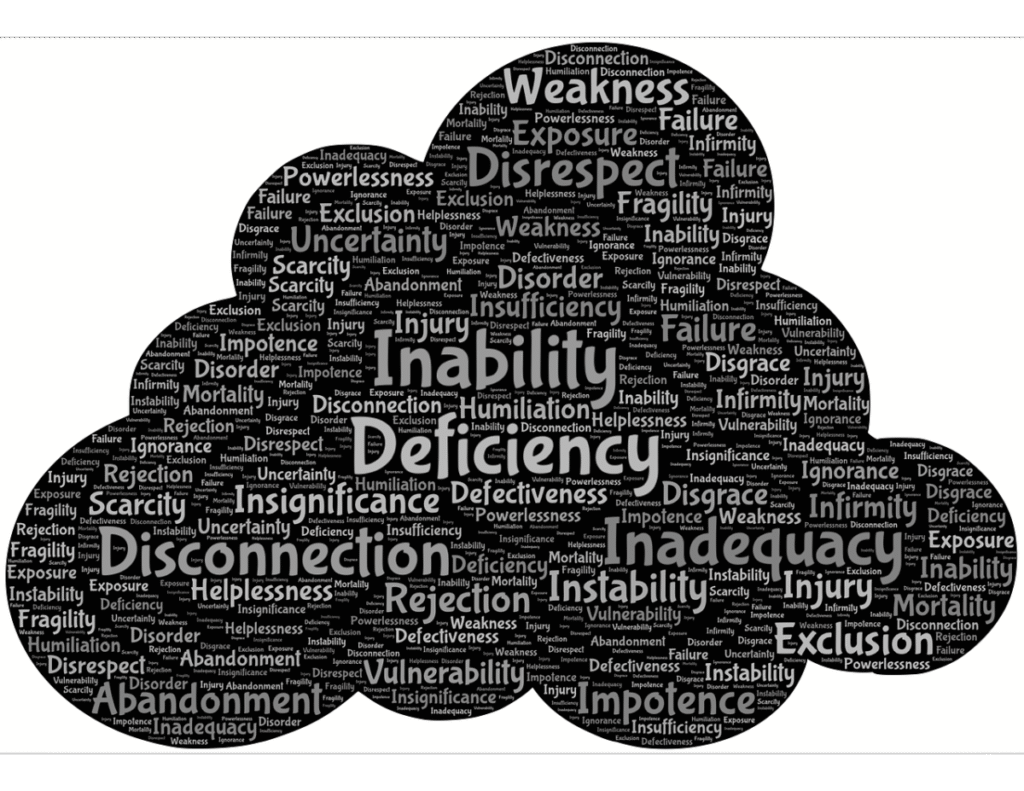Contrary to what a lot of self-help books and motivational seminars will tell you, it really does pay to be negative!
If you look throughout history, some of the most controversial and influential leaders have come to power off the back of campaigns of negativity and fear.

Photo courtesy of robinsoncaruso on Flickr.

Adolf Hitler, Donald Trump, President Duterte in the Philippines and yes, our favourite buzzword, “Brexit” Leave Campaign was won on the politics of fear. (That’s not to say the Remain campaign didn’t run their own campaign of fear mongering.) Politicians with half a brain cell realise that if they manufacture scapegoats or highlight all that is perceived as wrong with society, over and over again, that the media will buy into it. In his pursuit of power, Boris Johnston has seemingly mastered this tactic over the recent years.
The media also plays its dominant part in the game of negativity. They understand that fear sells. They get more viewers and more readers, which in turn sells ad space. And if you see the same negative news stories over and over again, how can you not but believe what you are being fed?
The issue is, those same people (very often politicians and media) who create an environment of negativity do not actually think with the long-term in mind. They move from election to election, and from the sales cycle to cycle. So long as they are fulfilling a self-interest, they will keep pumping out the same negative stories.
Why is it so easy to be negative
Science backs this up. It is so much simpler to stir up negativity than to inspire positivity. It’s always easier to blame others, the life we were born into, our surroundings than to look at ourselves and take the time to understand where it is we are individually or collectively going wrong.
In 2005, the National Science Foundation published an article stating an average person has about 12,000 to 60,000 thoughts per day. Around 80 percent of those thoughts are negative, and 95% are exactly the same repetitive thoughts as the previous day. Imagine what that negative self-talk does to us and collectively as a society.

So if we are having our negative thoughts exacerbated what is that we are really striving for beyond all this negativity? Happinessis the answer, of course. “If I have more money I will be happy,” or “If I get that dream house or car, or if only I had my dream job then I’ll finally be happy.” The chase for happiness is constant.
Well, perhaps not entirely. Happiness is great, but some of the happiest people in the world also get bored! As Tony Robbins puts it, what really makes people tick is personal growth. If you don’t feel that you are growing as a person or that we are developing as a society, then you are going nowhere. In fact, you are going backward.
What is the compelling alternative to negativity?
What would happen if we stopped seeing the world through the problems and began to see it through the possible solutions instead? Then, we are open to solving the world issues in a new way, or as Ray Dalio puts it “Pain + Reflection = Progress.” For example, what if we spent more time reflecting on how we can actually solve some of the world’s most significant challenges, individually or collectively instead of just consuming the news media serves us? The results of this new direction are positively surprising!
For example, in a famous Ted Talk in 2010 Bill Gates made the point that when people enjoy higher living standards (by vaccines, higher education, better healthcare infrastructure, better economy, access to reproductive services, etc.), the average woman tends to give birth to fewer children in their lifetime. This, in turn, helps to control population rates. When people learn how to create their own social, economic impact rather than having to jump ship and move around from continent to continent, they actually feel more self-worth and are better off. As the saying goes, “There really is no place like home” when we create the decent living conditions.
Ok, so you are thinking “I am not Bill Gates and can’t have the same impact on the world” But the fact is you can. Start small but think big.

How to think in terms of solutions in your everyday life
To change your mindset from the sole focus on the problem and the negative, first, you need to stop thinking in terms of issues and start to think in terms of solutions. Second, begin thinking about how can you help yourself first, and look for guidance from people who you feel are successful.
I’ll explain this using the example of finding that dream job or getting some business advice to begin.
Imagine you want to ask someone successful to give you some useful advice on a problem you are dealing with at the moment.

Photo by Jon Tyson on Unsplash
Instead of approaching them with a question such as “I want to get a job in X, what do I do?” show them you have thought about solutions for your problem first. Use the following process when you try to explain your challenge:
1. What have you tired? Explain what you have already tried to get the job.
2. Why hasn’t your approach worked? Offer your thoughts as to why you believe what you tried hasn’t worked out yet.
3. What is a possible solution? Present 2-3 solutions that you think could work.
4. Ask for feedback with an open-ended question like “What are the chances that the above solution(s) could work or what else would you suggest?”
This approach will work better than the “I need advice” or “I need help” question because you are indicating to your advisor that you do not want them to solve the problem for you. Instead, you are asking for their advice and practical solutions. This approach gives you better results because you are communicating your interest in their opinion and their experience on the matter.
Simplistic or not, but if you start thinking in terms of solutions and believe in positive outcomes it becomes contagious. Imagine if as a society we could do this? Rather than waiting for our politicians to solve the “problems,” perhaps it really is incumbent on us to come up with our own solutions to problems ranging from too much litter on the streets to the strains on our health service or housing the homeless.
I will leave you with two quotes:
The late Professor Stephen Hawking said “When you complain, nobody wants to help you. If you spend your time on the things that are wrong, and that’s what your express and project to people, you don’t become a source of growth, you become a source of destruction”.
And perhaps something to set your sights on as recommended by Peter Diamandis “Solving the world’s biggest problems, also presents the biggest opportunity for business.”


